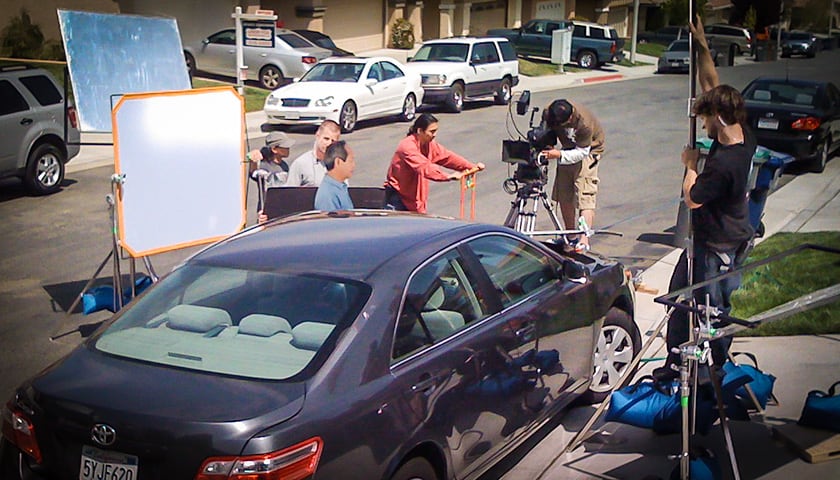From the outside, producing a movie appears to be glamourous, fun and exciting. It is an adventure that may afford you the opportunity to work with famous personalities, travel the world, and have experiences that most people only dream of. The process of producing a movie is rarely as engaging as this romanticized facade. In reality, movie production is an arduous and challenging process that requires massive amounts of time and money. Many filmmakers fail under the weight of the demands of production and end up in debt with little to show for their efforts.
Smart producers will carefully consider the factors that go into producing a movie.
- Make sure it’s a project you LOVE – A movie can take you years to produce. From the time you develop the concept or find the perfect script to the moment you turn over the master tapes to a distributor, years will pass. As basic as it may sound, it’s important to find a project that you truly love – one that you will look forward to working on, even when the going gets tough and it seems that the odds of completing it appear impossible.
- Your movie will always cost more than you think – Even the most experienced line producers fail to account for costly line items: weather that can wipe out entire shooting days, additional equipment that may be needed on set, days that may run into over time, payoffs to annoyed neighbors when you’re shooting on location, codec problems in the editing process… there are dozens of factors that can add thousands of dollars to your budget. Be prepared to spend a lot more than you originally anticipated before beginning the process.
- Your movie will always take longer to produce than you think – Movies will always take longer to produce than you initially think. Especially in the independent world where money is scarce, you will be forced to develop cheaper workarounds that while saving money, will ultimately cost you time. There is an old adage that says you can produce a movie with only two of the following three options: cheap, fast or good. If you want you movie to be inexpensive and good quality, it won’t happen quickly. If you want you movie to be inexpensive and quickly produced, it wont be good.
- Don’t be too ambition with your page/day count – Shooting 4-5 pages a day is a comfortable amount that allows you time to rehearse actors and carefully set-up each scene. Productions with limited funds will try to cram as many as 7-9 pages per day. This won’t allow any time to light or rehearse and will drastically cut into the production value of the movie. You have to ask yourself at which point are you going to compromise the quality so severely that you’ll hinder your ability to sell the film.
- Don’t forget Post-Production – Many producers are so focused on getting the film “in-the-can,” that they completely overlook the costs and time required to complete the post-production of the movie. From editing and sound mixing to composing and mastering, the post production process often takes longer and is more expensive than shooting the movie. It’s a god idea to work with your post-production house at the very beginning so you can anticipate and manage your costs by pre-planning your post-production requirements.
Approach the production of a movie like you would with any investment. Look realistically at the costs and resources needed to properly pull it off.


